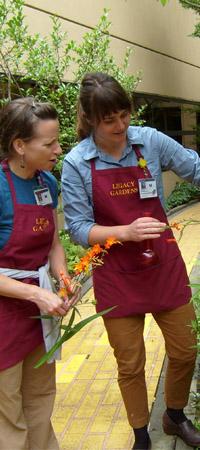Horticultural Therapy as a Career
Horticultural therapists require extensive training in applying horticultural-related activities as interventions to improve and enhance the physical, cognitive, and emotional well-being of diverse client populations. Horticultural therapists are analytical and resourceful demonstrating strong leadership skills and a collaborative work-style. Moreover, throughout their career, they maintain a high level of skill in therapeutic diagnoses and the potential impact of impairments on quality of life, as well as knowledge of plant science and horticulture techniques. Horticultural therapists are empathetic, patient, and self-confident and must be flexible, and at times entrepreneurial, to facilitate an enriching experience for the individuals receiving their services. Horticultural therapists work as members of clinical teams and rehabilitation teams. They work as educators, community providers of horticultural therapy services, and as independent consultants. Horticultural therapists work in hospitals, rehabilitation centers, schools, vocational programs, mental health clinics, and many other health related settings. To learn more about becoming professionally registered with the American Horticultural Therapy Association, please visit the Professional Registration section. |




